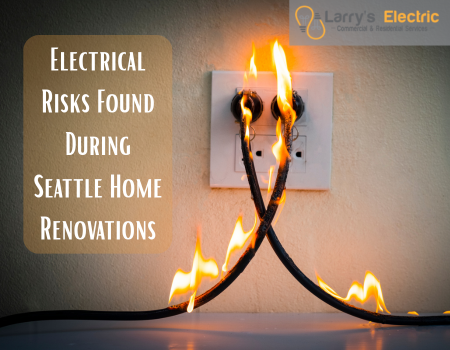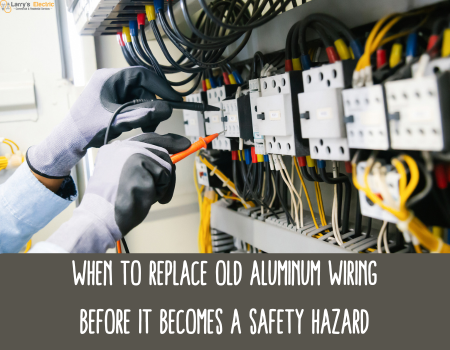Improving home energy efficiency typically starts with insulation, windows, HVAC systems, and high-efficiency appliances. But there’s one often overlooked factor that can quietly impact your home’s energy use and utility bills: your electrical wiring.
If your home was built decades ago and still relies on its original wiring, it could be costing you more than you realize — not just in energy inefficiency, but also in safety risks. So, can old wiring affect your home’s energy efficiency? The short answer is yes, and here’s why.
How Old Wiring Impacts Energy Efficiency
Electrical wiring is like the circulatory system of your home, delivering power to every outlet, switch, and appliance. As wiring ages, it can deteriorate, corrode, or become less effective at conducting electricity. Here’s how that affects your home’s efficiency:
1. Higher Electrical Resistance
Older wiring, especially if it’s worn or outdated, tends to have higher electrical resistance. Resistance is the measure of how much a conductor opposes the flow of electricity. The higher the resistance, the harder your electrical system has to work to deliver power, resulting in wasted energy and higher utility bills.
2. Voltage Drops
Aging wiring may not efficiently carry the correct voltage to your appliances and devices. This can lead to voltage drops, where electrical equipment receives less power than needed, causing them to work harder, use more energy, and potentially wear out faster.
3. Inefficient Connections
Old connections, junctions, and outlets can become loose, corroded, or damaged over time. Poor connections not only waste energy but also increase the risk of overheating, which can lead to electrical fires.
4. Limited Capacity
Many older homes were built with wiring designed to handle far fewer electrical demands than modern households require. As a result, older systems may struggle to efficiently support today’s high-energy appliances, lighting, and electronics — leading to overloaded circuits and wasted energy.
Types of Old Wiring That Cause Problems
Not all wiring is created equal, and certain types of older electrical systems are particularly notorious for inefficiency and safety hazards:
- Knob-and-Tube Wiring:
Common in homes built before the 1940s, this outdated wiring system lacks grounding and is prone to insulation breakdown over time. - Aluminum Wiring:
Popular in the 1960s and 1970s as a cheaper alternative to copper, aluminum wiring can oxidize and loosen at connections, increasing resistance and the risk of fire. - Worn or Brittle Insulation:
Over time, the insulation around electrical wires can crack or degrade, exposing bare conductors and reducing energy efficiency while posing a shock hazard.
Signs Your Old Wiring May Be Hurting Efficiency
If you’re unsure whether your home’s wiring is affecting your energy efficiency, watch for these common warning signs:
- Frequent tripped breakers or blown fuses
- Dimming or flickering lights when appliances turn on
- Warm or discolored outlets and switches
- Outlets that don’t hold plugs securely
- An increase in energy bills without explanation
- A burning smell or buzzing sounds near outlets or switches
Any of these signs suggest it may be time for an electrical inspection.
Benefits of Upgrading Your Home’s Wiring
Upgrading to modern wiring improves not only safety but also boosts your home’s energy efficiency and overall electrical performance. Benefits include:
- Reduced energy waste from improved conductivity and lower resistance
- Fewer voltage drops and more consistent appliance performance
- Better support for modern appliances and smart home technology
- Enhanced safety by minimizing the risk of electrical fires or equipment damage
- Increased home value and compliance with current building codes
When to Consider a Rewire
If your home is over 40 years old and still has its original wiring, it’s a good idea to schedule an electrical inspection. Even if you’re not experiencing obvious problems, outdated wiring may be quietly impacting your energy use and posing hidden risks.
A licensed electrician can evaluate your system’s condition, identify inefficiencies, and recommend necessary upgrades or partial rewiring to improve safety and energy performance.
Yes — old wiring can absolutely affect your home’s energy efficiency. Outdated, deteriorating electrical systems increase resistance, waste power, and place unnecessary strain on your appliances and devices.
If you live in an older home, having your wiring inspected and updated is one of the smartest ways to improve both your energy efficiency and overall safety. Not only will your home run more smoothly, but you’ll likely see lower energy bills and greater peace of mind.









